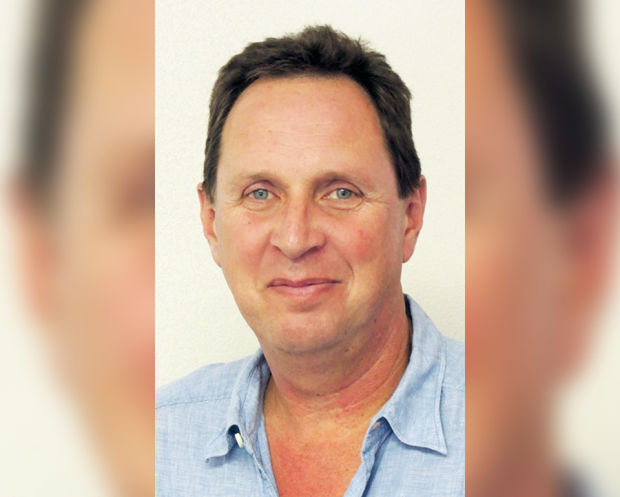KAPAA — Kapaa businessman Bruce Whale heard about Nelson Mandela’s death early Thursday in a phone call from his mother in South Africa. “She was choked up,” the South Africa native said on Thursday. “Her voice was wavering on the
KAPAA — Kapaa businessman Bruce Whale heard about Nelson Mandela’s death early Thursday in a phone call from his mother in South Africa.
“She was choked up,” the South Africa native said on Thursday. “Her voice was wavering on the phone. She was very upset.”
Kalaheo resident Sharon Douglas, also born and raised in South Africa, said Mandela would be remembered in the likes of Gandhi and Martin Luther King — not just by his own people but by all people.
“What a gift to South Africa and what a gift to the world,” Douglas said.
From her birth in 1961 until the early 1980s, Douglas said the white nationalist government told citizens that Mandela was a terrorist.
Douglas said she was not aware Mandela was a symbol of freedom and anti-apartheid to the outside world until she traveled as a college student.
“He was a remarkable man,” she said.
Serving 27 years in a brutal prison for their beliefs would have filled anybody else with hatred, Douglas said. That same experience, however, turned Mandela into a saint, she said.
“He has this incredible presence, compassion and peace within himself. He was able to just radiate it out,” Whale said. “There was no hatred in him, which was amazing for a man who was locked up for three decades.”
Prior to Nelson’s release from prison, Whale recalled there was a sense of fear that the country was headed toward a civil war.
As the African National Congress grew in power, a revolution was brewing, Whale said.
Douglas said F.W. de Klerk, the country’s president, was a visionary.
“He was the last minister of the apartheid government, and he was the one talking to Mandela and actually brought him out of prison,” she said.
Whale said he lived in Cape Town when Mandela was released from prison and remembered what seemed like hundreds of thousands of people rushing to greet the ex-political prisoner.
“You couldn’t even get close to him,” he said. “They were dancing in the streets. It was a huge celebration.”
Whale vividly remembers Mandela’s first words to the people after being released — he found himself holding back tears as he reminisced about the historic event.
“His first words were, ‘Hello. I’m Nelson Mandela and I greet you all in the name of peace,’” he said.
What impressed him the most about Mandela was that he did not express ill-will when he was released, but instead talked about rebuilding a nation of peace.
He also said Mandela developed personal relationships with the prison wardens.
“That’s what amazed everybody.” Whale said. “There was no animosity toward the Caucasians or Europeans who had arrested him.”
He said there was a concern about how the country’s government and economy would change. But there was a sense of optimism, not fear, as they looked toward the future.
As a member of the Truth and Reconciliation Commission, which was assembled after apartheid was abolished to gather testimony from human rights victims and their persecutors under the apartheid system, Douglas recalled her facilitator saying, “Imagine the South Africa you want to live in.”
It was not just a black and white message, she said. It was about all races and faiths.
“Mandela and Bishop Desmond Tutu managed to get the country to that point where people were willing to hear about the atrocities,” she said. “It was a lot of soul searching and recognizing the need for change.”
The road to change, however, was not easy, Douglas recalled. Her mother’s generation of white Afrikaners was fearful of the power transition because they had been raised in that system since 1948.
Mandela made it possible to work past a long legacy of unfairness, she said.
“We finally learned what kind of man he was and that he was not a terrorist,” Douglas said. “He and de Klerk realized that we have to listen to each other rather than judge.”
Whale also recalled when the South African rugby team, known as the Springboks, was a representation of black oppression and how that changed when Mandela publicly supported the club in an attempt to unify the country’s citizens.
“It was such a symbol of the apartheid system, the green and gold jerseys,” he said. “But there was Mandela during the World Cup. He had a Springbok jersey on and was dancing in the stadium. He was truly a man of peace. That was the enduring feeling from him. He was definitely a peacemaker.”
The question, Whale said, is what will happen now that Mandela has died.
“He was such an anchor for the country. He kept a lot of the radicals, those who were very anti-Caucasian and anti-European, in check,” he said. “There’s probably more concern with him gone. He was a mediary. Just the fact that he was alive, they deferred to him.”
• Nick Celario, sports writer, can be reached at ncelario@thegardenislandcom. Tom LaVenture, reporter, can be reached at tlaventure@thegardenisland.com


